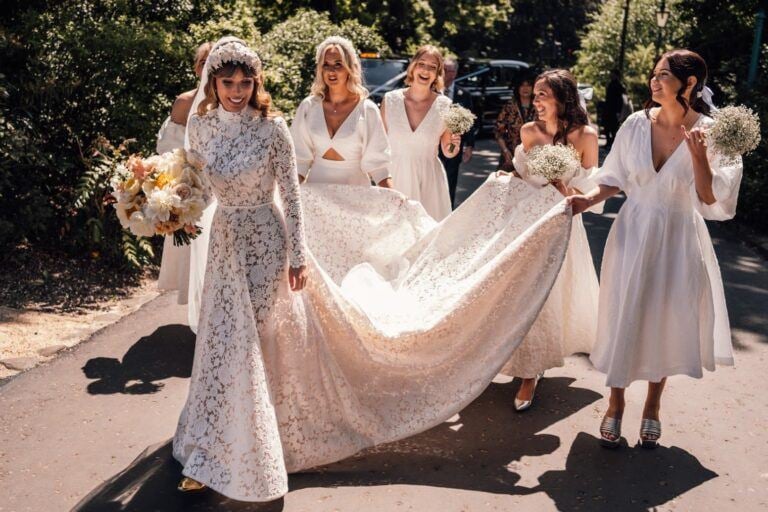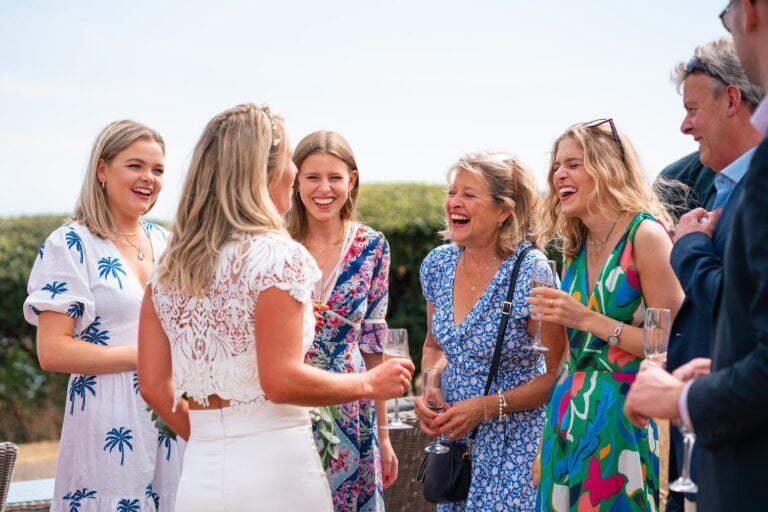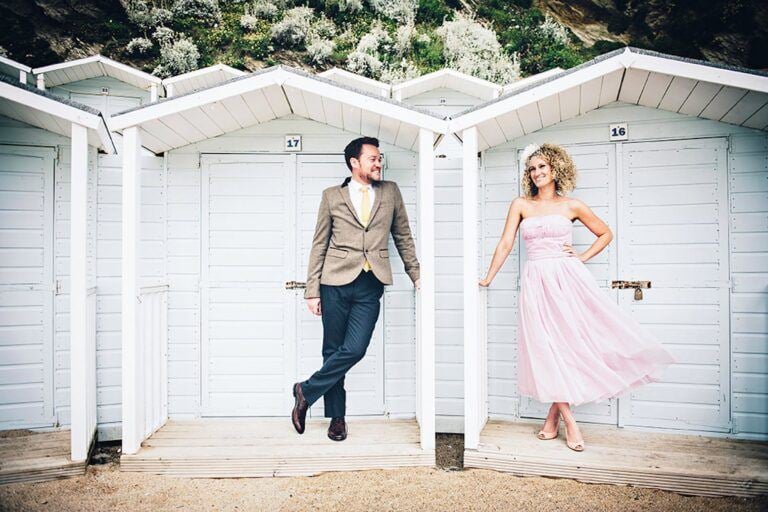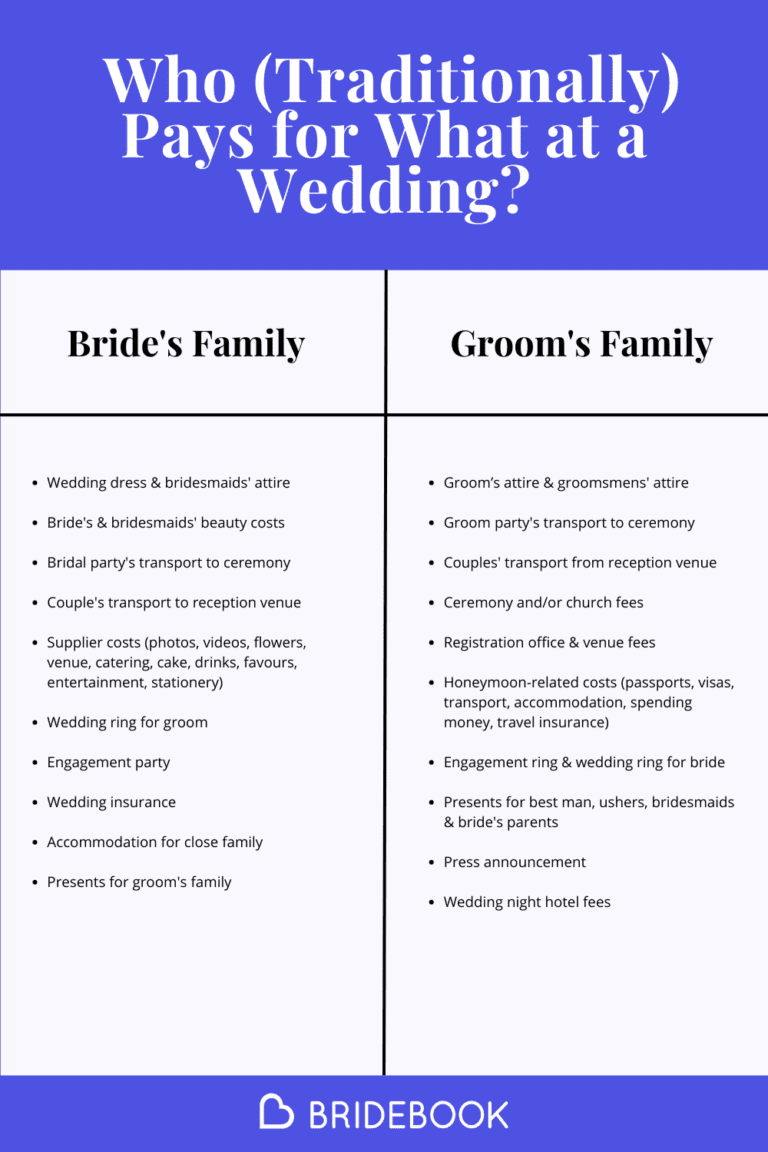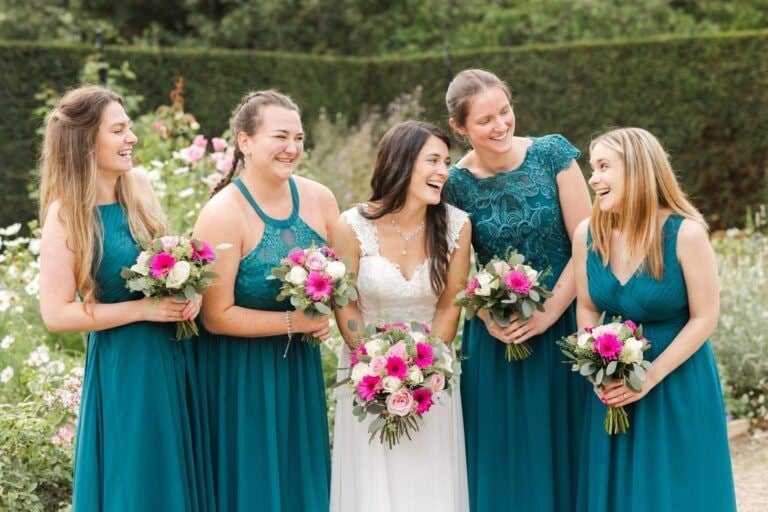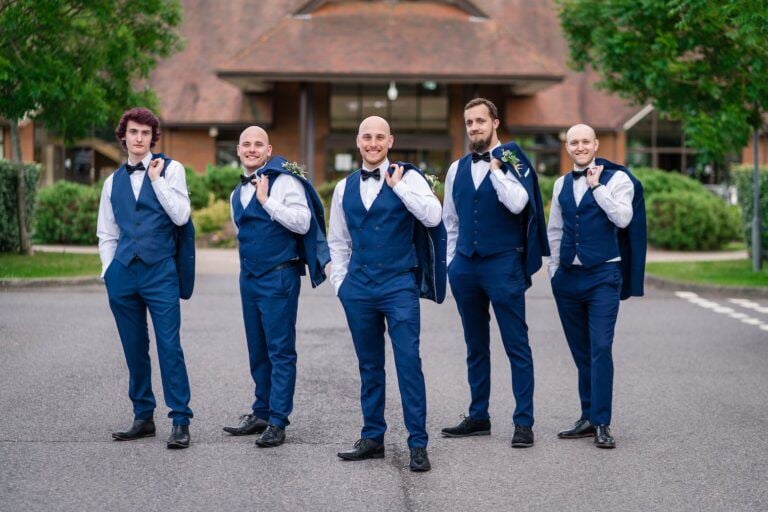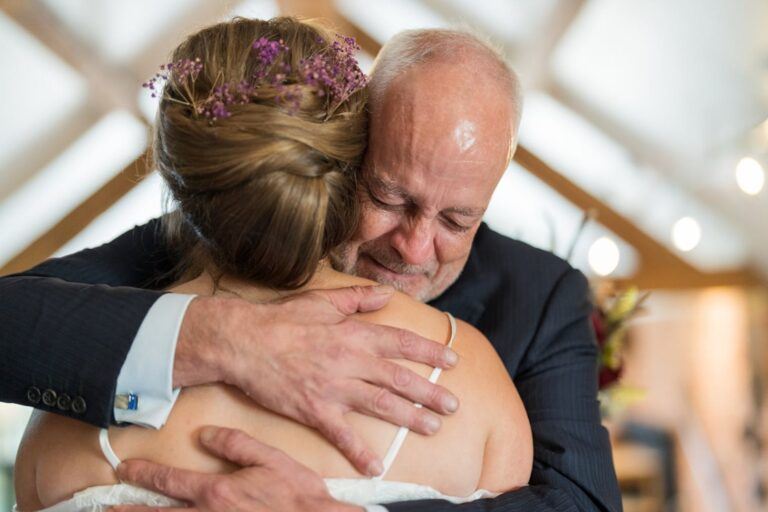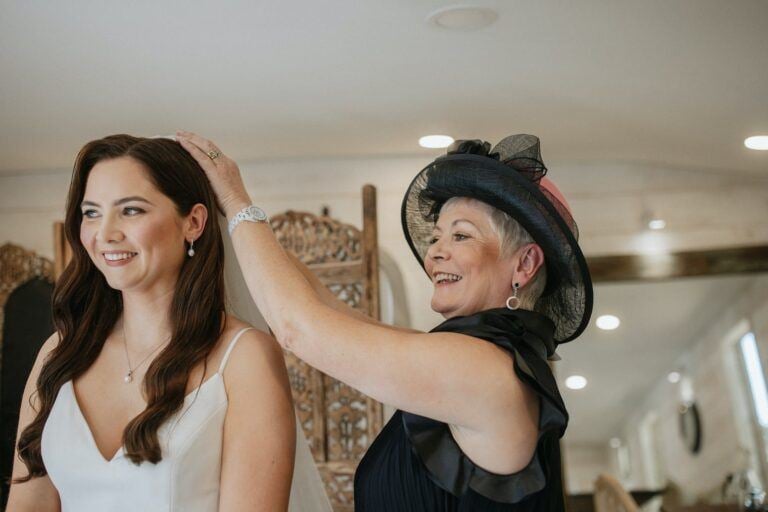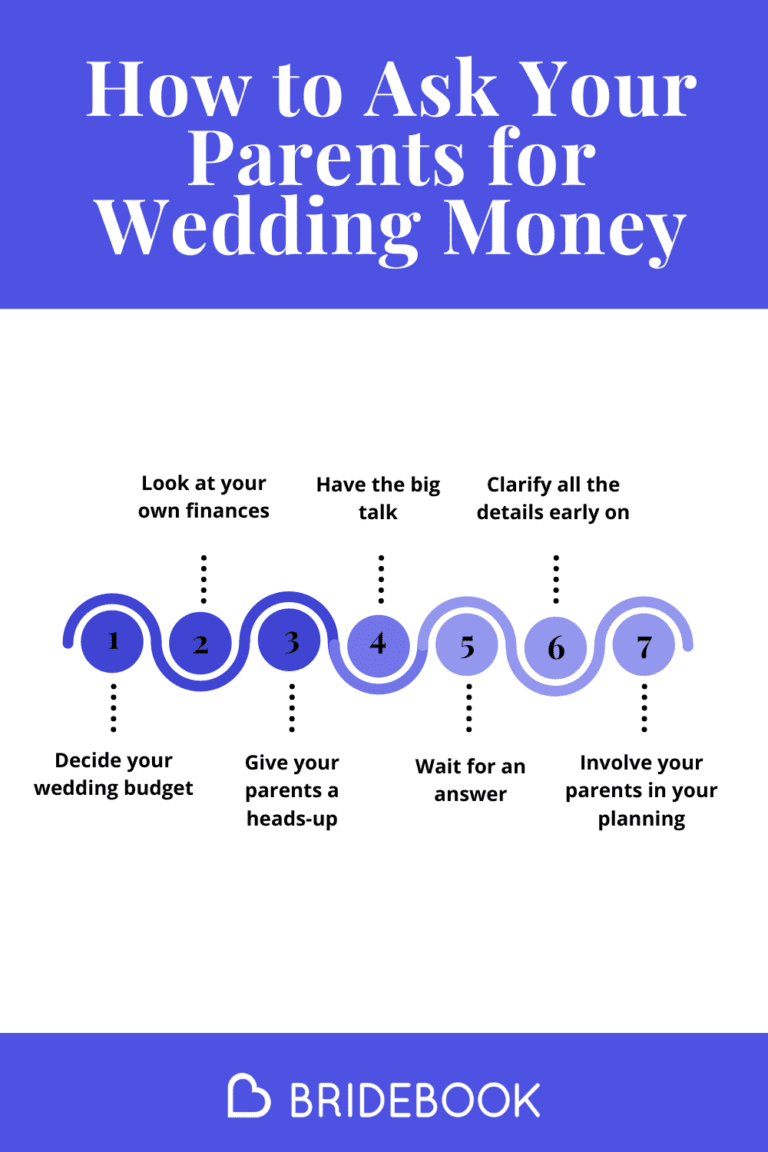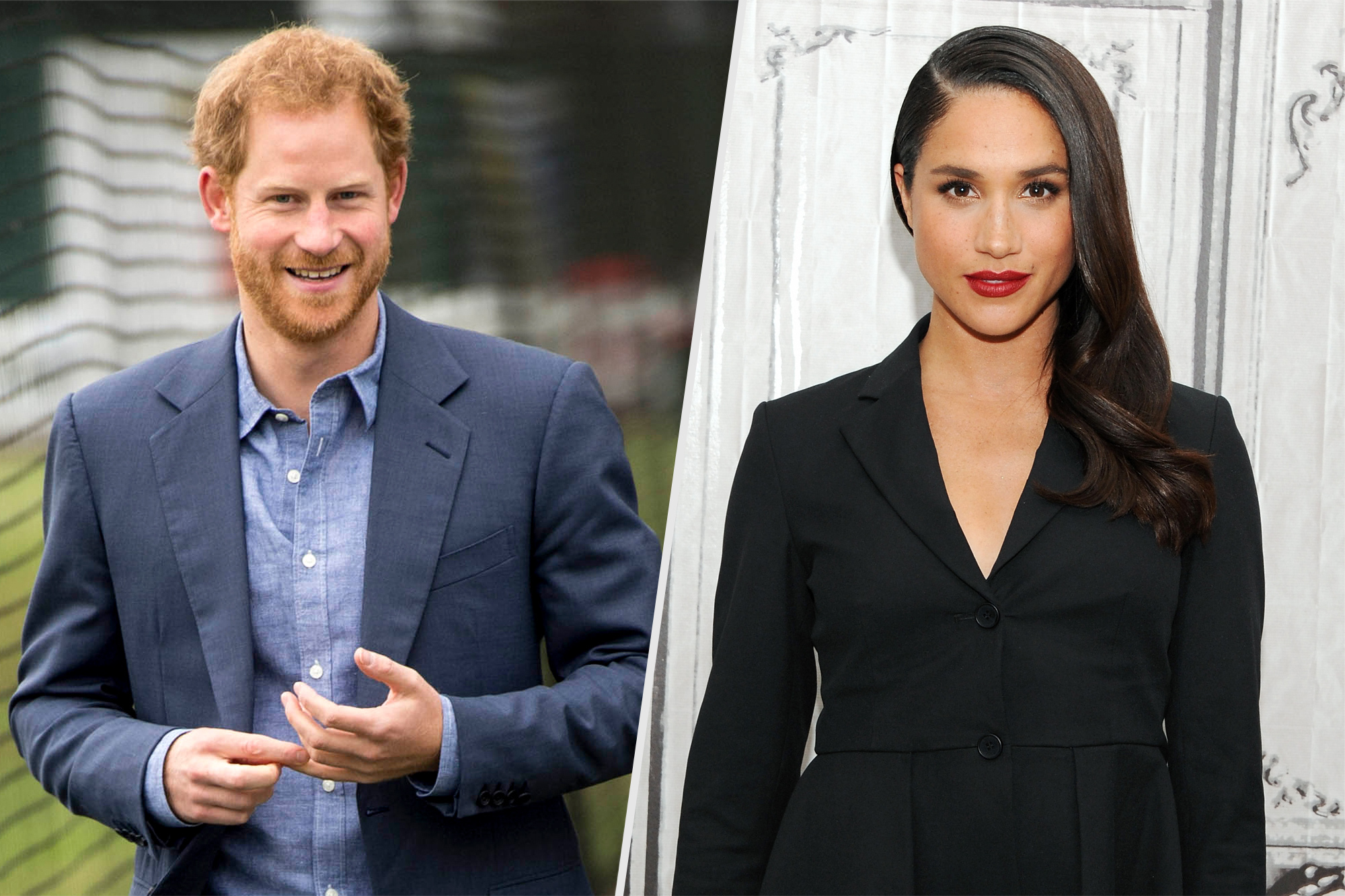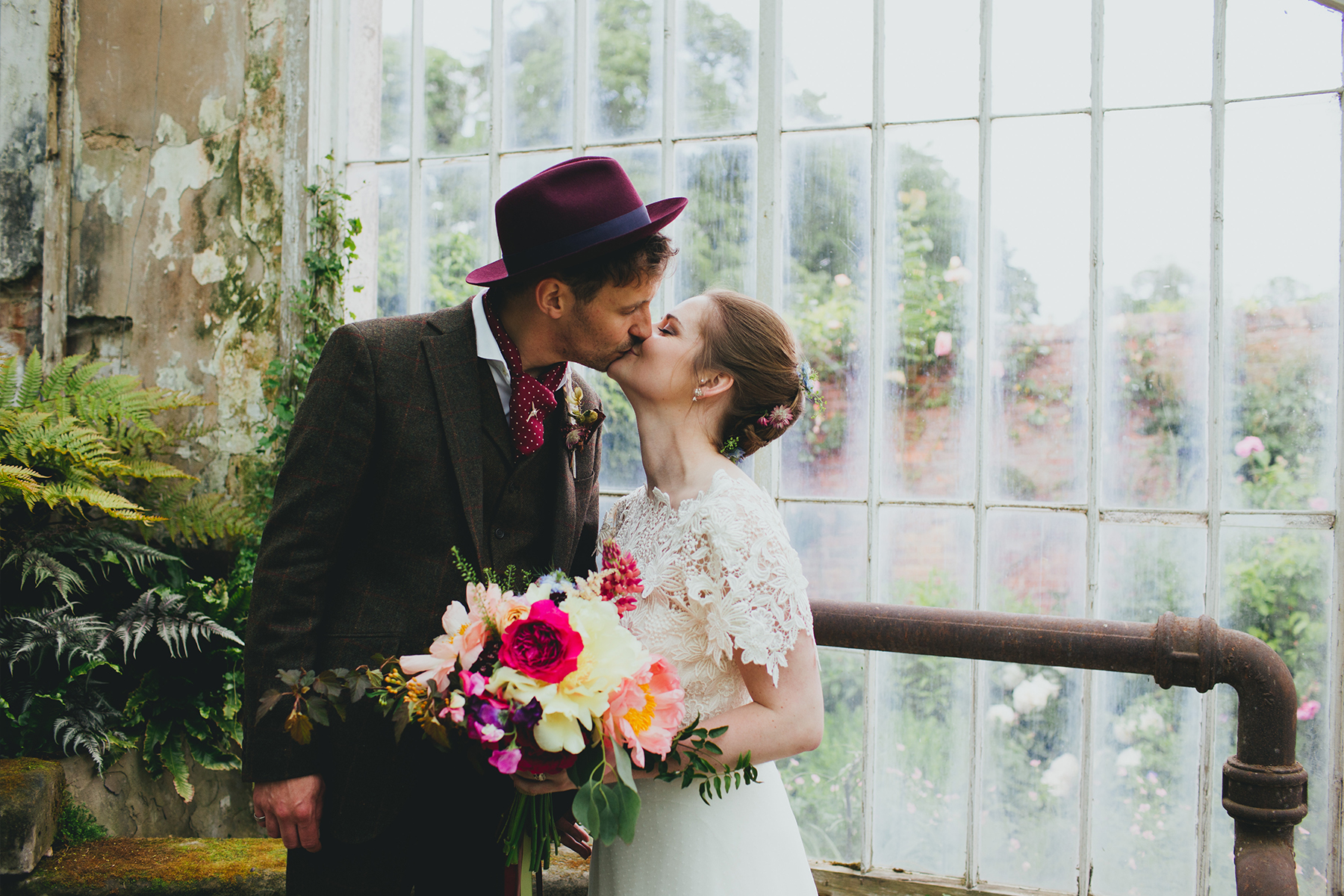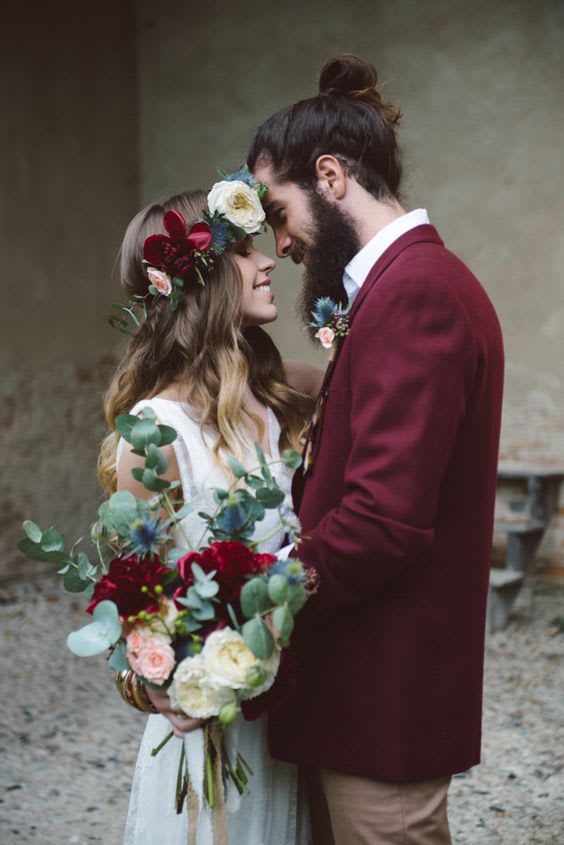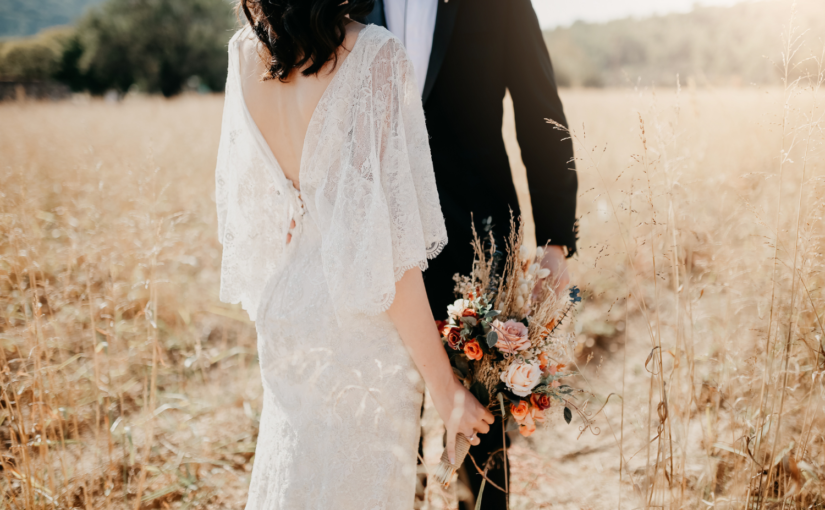
Today’s couples spend an average of £16,842 on their big day, with the average wedding size being 78 guests for the ceremony and 83 guests for the evening. But Harry and Meghan aren’t like today’s average couples. They’re having everything from bespoke silver plated fanfare trumpets to a “drone destroyer”, so it’s safe to say they will be adding a few extra zeros to their bill.
800 guests are attending the church and then the formal lunchtime reception, followed by a private evening reception for family and friends of about 600 people. However, in a surprise twist, Harry and Meghan invited 2,640 members of the public to celebrate with them at Windsor Castle.
With this is mind, the highest expenditures are likely to be the catering, the dress and the decor. Bridebook.co.uk, the UK’s no.1 wedding planning app and website, has calculated that the overall cost is expected to be over 100 times as much as the national average, at £1,969,873. That’s not including a £120,000 honeymoon or the £30 million expected security costs involved on top!
With a total of 4,040 guests, 17,000 glasses of champagne and wine, 28,000 canapés and an 8-tier banana cake, welcome to the royal wedding!
Venue – £350,000
Luckily for Harry and Meghan, they won’t need to worry about securing a venue like most couples. The ceremony will take place at St George’s Chapel at Windsor Castle and following receptions are expected to be held St. George’s Great Hall, within the castle, and later in a luxury marquee in the Upper Ward grounds of Windsor.
The average UK wedding venue cost is £5,819, and while they don’t need to pay for the venue, they will need to cover a luxury marquee for the reception in the grounds. A luxury glass marquee – like the one Pippa had in her wedding, – will cost £300,000, plus the catering, security and staff adjoining marquees that will be required.
Catering – £286,000
The catering costs will mostly be split between the formal lunch reception for state guests and the following dinner reception for close family and friends. Top luxury London caterers will charge at least £100 per guest for a lunch reception and £300 per guest for a dinner reception, including all food, chefs, staffing and crockery hire.
Add the 2,640 members of the public who will be invited to Windsor and give each one a hot tea and a snack (sausage rolls anyone?). At £10 per head, that’s £26,000 on sausage rolls! All in all, this will likely amount to one of the most costly aspects of the wedding.
Drinks – £193,000
The drinks will likely come from the Royal Palace cellars, but that doesn’t mean they’re not worth a hefty amount. Based on the wedding standard of serving one glass of champagne for every 30 minutes of the reception, plus half a bottle of wine per guest per dinner, means they’ll have to provide at least 2,300 bottles to keep their guests happy. We expect roughly 1,700 bottles of vintage champagne to be served throughout the day and at least 650 bottles of wine, whiskey and cocktails to accompany dinner and dancing. Serving such quality drinks to over 800 guests throughout the day doesn’t come cheap, whether you have access to a Royal cellar or not.
A bottle of Bollinger, the Royal Family’s Favourite Champagne, goes for £80 a pop, that means spending £136,000 on champagne alone. Top that with a few bottles of Prince Charles’ favourite 15-year-old Laphroaig Scotch and the multitude of bottles of Tignanello Wine (Meghan’s personal favourite according to her old lifestyle blog, “The Tig”) and the bill certainly adds up. Thankfully Prince Harry’s favourite drink, the exquisite Vodka Redbull, should be the least expensive drink of the evening.
Dress – £300,000
Meghan is expected to spend a whopping £300,000 on fashion, with most of the budget going towards her first dress. Meghan has a very distinctive sense of style, oozing confidence and pizzazz. She is therefore likely to opt for a completely bespoke wedding dress so she can have full control over the design from start to finish.
If Meghan sticks to her usual fashion sense, we should expect to see a classic, clean, simple design (which means no beads, embroidery or embellishments) with a high neckline and a signature modern twist. A completely bespoke haute couture wedding dress plus a second dress for the evening could cost £300k+.
Bridebook Survey Facts!
We surveyed 1000+ UK dressmakers and this is what they had to say about Meghan’s dress.
- 70% of dressmakers predicted that Meghan will wear a silk dress with a sheath cut. Alexander McQueen was the most popular choice for the designer.
- 91% of dressmakers said that Meghan will most definitely start a new wedding dress style trend, no matter what she chooses to go with.
Floristry – £110,000
Floristry is often much more costly than expected, and with at least two locations for the day will also be one of the heftiest costs for the couple. Marquee weddings always require a higher floristry budget as they act as a very large blank space that relies on flowers and decor to build the environments for the big day, with our estimates landing flowers for the marquee alone to cost approximately £70,000. The church will also need to be decorated accordingly, which we expect to be a slightly smaller £40,000 Luxury UK florists such as Lavender Green Flowers (who worked on Pippa Middleton’s wedding) and Nikki Tibbles of Wild at Heart (London’s most sought-after luxury florist based in Belgravia) are the top contenders. The florist of choice is likely to use seasonal, British flowers to decorate both St George’s Chapel and Buckingham Palace with elaborate displays.
Bridebook Survey Facts!
We surveyed our 1000+ UK florists and this is what they had to say about the Royal Wedding flowers.
- The star flower at the Royal Wedding will be the Peony. Matching bridesmaids bouquets will also be a must on the big day, with a white and green colour theme throughout.
Photography & Videography- £17,000
Hiring one of the top wedding photographers will cost around £4,500. Dorset-based Millie Pilkington, the private wedding photographer for the William and Kate’s wedding and Pippa Middleton’s, is most likely to be the primary person behind the lens, however, we expect Hugo Burnand to also be involved for official photos, doubling the price to ensure every moment is beautifully captured. Add to that the multiple costly wedding photography books Meghan and Harry will likely request and this price goes far above the £1,600 the average couple spends.
Although the world’s media will be filming every moment of the ceremony, Harry and Meghan are likely to also have a videographer there to capture the day from start to finish. Luxury videographers have teams of cameramen to capture all angles, plus a drone or two.
Cake – £50,000
A stunningly-decorated cake from a top cake maker will start from £4,000 and need to be at least 8 tiers to give a slice to each of the 800 guests. Cakes made with fresh fruit are more expensive and we can safely assume this will be the case for Harry and Meghan’s banana wedding cake, which will certainly be topped with other fresh fruits and berries. The couple is also expected to have a second cake at their wedding which will surely bump up the cost.
As for who will be making the cake? Our guess is London-based Fiona Cairns (the royal baker behind the reportedly £80,000 Duke and Duchess of Cambridge’s wedding cake) or the society favourite Rosamund Miller.
Stationery – £20,000
The wedding will require a number of stationery elements from save-the-dates, to the invitation, the Order of Service, the menus, and the stamps! Invitations from a top stationer will cost around £20 each before the other items are included. However, the bride-to-be used to be a professional calligraphist for celebrity weddings, so if the couple decides to go DIY on this one, they could save a couple of pounds for their luxury honeymoon!
Music – £300,000
From bell ringers to the organist and choirs in the church, to musicians for the reception and a top wedding band and DJ, music will be the center of the entertainment. It’s also likely that a world-famous performer will be flown in to surprise the guests – Prince William and Kate had Ellie Goulding sing their first dance song. Our experts predict one of Harry’s close friends such as Chris Martin from Coldplay or a mutual friend of Meghan’s such as Rihanna could make an appearance.
There have also been rumors that the Spice Girls or even Elton John will be performing at the Royal Wedding. Elton John has been known to charge £80,000 per song at private events, so hopefully, he’ll throw in “Tiny Dancer” for free.
Trumpets – £90,000
A royal event wouldn’t be complete without the classic Royal Announcement “dun dun-dun-dun-duuun”. The Ministry of Defence has made a request for 20 silver-plated fanfare trumpets stamped with the Royal Coat of Arms. Made in the same workshop where Will & Kate’s wedding and the London Olympics’ trumpets came from, each bespoke trumpet costs between £3,000 and £6,000. That’s a lot of £££ for trumpets with fancy flags.
Decoration and Production – £130,000
For spectacular lighting and production between the Church, Windsor Castle and the marquee, a top London agency such as HRP Production Solutions will likely be taking on the job of adding the absolute wow-factor. From estate wide lighting to furniture and bar hire and amazing dance floors, production is key to transforming venues into something truly jaw-dropping.
Wedding Rings – £6,000
Since 1923, it has been a tradition in the Royal Family to use Welsh gold for the wedding ring of the bride. The Queen holds a small amount of gold that is kept in the royal vaults. Royal warrant holder Wartski, with ties to Wales, created Catherine, Duchess of Cambridge’s ring, so could be the same choice of Meghan’s.
Although Prince Phillip and Prince William have never worn wedding rings, Bridebook.co.uk believes Harry will take after his Father and an increasing number of millennial grooms and wear a single gold band. Though Prince Charles wears a ring on the little finger on his left hand, we predict that Harry will choose to wear a band on his fourth finger proving again that he is intent on doing things his own way, proudly showing the world that he has tied the knot with Meghan. This Prince is taken!
Bridesmaids Outfits – £5,000
The average cost of a designer bridesmaids dress is £1,000, plus add the custom tailoring Meghan will likely request. The average number of bridesmaids a bride in the UK has is 3.4, and though the Duchess of Cambridge didn’t have any adult bridesmaids, we predict that Meghan will want to have 3 of her close friends as bridesmaids, especially considering it’s a trend in the U.S.
Flower Girls and Page Boys Outfits – £1,698
With Prince George and Princess Charlotte due to be center stage as flower girls and page boys, Nicki Macfarlane, who provided the flower girls outfits for the Royal wedding, will likely be back on hand. A page boy outfit will cost around £226 each, and flower girl dresses £340.
Church Fees – £175
St. George’s Chapel is the place of worship at Windsor Castle where the nuptials will take place, and Harry and Meghan will need to pay their marriage fees just like everyone else. The most important part of the day is by far the cheapest!
Groomswear – £8,000
As a qualified Apache Helicopter Commander, Prince Harry is likely to be wearing a tailor-made Royal Air Force uniform to his wedding. The completely bespoke uniform won’t be cheap! Knowing Harry’s sense of style (all the more improved since meeting Meghan) he won’t be satisfied with just one outfit. A custom tuxedo or suit from Savile Row will be sure to push up the costs.
Hair and Makeup – £10,000
No doubt a top team will be on hand to ensure Meghan and the whole bridal party will be looking absolutely radiant. Belgravia’s Neville Hair & Beauty is a favourite of Meghan’s, or she may opt for Hannah Martin of Bobbi Brown and Richard Ward, who did Kate and Pippa’s wedding makeup and hair.
Entertainment – £55,000
We expect the Royal Air Force to be involved in at least some part of the wedding day, as well as more traditional wedding entertainment. Whilst guests taking photos is expected to not be allowed at the wedding, a photobooth will be an ideal opportunity to capture the guests at their best. Luxury children’s entertainers, like London’s based Sharky+George who did Prince William and Catherine Duchess of Cambridge wedding, are expected to be on hand to give parents the night off. London can also certainly expect to see some top quality fireworks to close the night.
Wedding Favours – £3,000
These lovely little gifts for every wedding guest should not break the bank. We expect something low-key and personal, such as handmade trinkets from Botswana.
Toilets – £35,000
Luxury guests require luxury toilets! For all of the church attendees, and the following receptions, luxury toilet rental for at least 800 guests does not come cheap. And let’s not forget those extra 2,640 guests which will likely add £20,000 to the toilet budget!
Transport – Free
The Queen has a State fleet which consist of three Rolls-Royces, three Daimlers and two Bentleys, all of which are kept in the Royal Mews at Buckingham Palace. She also happens to have a lovely collection of rare vehicles at her country estate in Sandringham, so the couple will have more than enough to choose from for the very short journey. And, as a happily married couple for the first time, might adopt a drive in his father’s Aston Martin Volante DB6, from the church to the reception, just like Prince William did.
And Finally… The Honeymoon £120,000
Traditionally the groom organises the honeymoon to surprise his new wife whisking her off the day after the wedding, however Bridebook.co.uk sees that more and more couples are choosing to plan their trip of a lifetime together, as well as not always jetting off on day one as husband and wife. Our honeymoon experts predict that Harry and Meghan will break all traditions and escape the frenzy for some alone-time together before they tie the knot, and that they will then whisk a group of party-loving friends away with them to celebrate afterwards, either on safari in Africa or to long-standing friend Sam Branson’s private Caribbean island, Neckar. Sources have also revealed that Meghan will be the one paying for the honeymoon as gift to the Prince and that the cost will be upwards of £100,000. We can’t wait to see where they escape to!
BONUS! Security – £30 million
Separate from the wedding are the security costs. A whopping £30 million was spent for the Duke and Duchess of Cambridge’s wedding in 2011. This year’s Royal Wedding will not take place in central London, however, but considering the number of members of the public attending this year’s Royal Wedding and the threats that have been made against the bride-to-be, the security is sure to still be tight, with the expected cost being upwards of £30 million.
Besides the usual snipers on every rooftop and undercover police on the streets, the wedding will be fitted with the latest military technology, including a British counter-UAV system, which will cost at least £1 million. The system will be used to deactivate intruders and sneaky paparazzi drones. Add another £1 million to the budget for the “Drone Destroyer”.
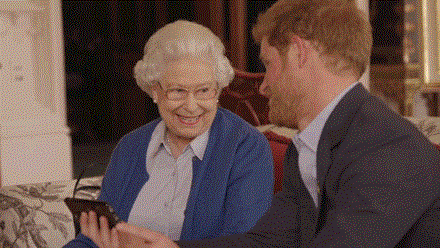
Planning your wedding?
Bridebook is the UK’s number one free wedding planning app, with over 16,000 registered wedding businesses and more than 100K couples planning their wedding with us.
Are you are an engaged couple looking for your wedding team?
See the largest selection of the UK’s best venue & suppliers here!
Are you looking for wedding advice? Start with these:
The Ultimate Wedding Budget Breakdown
21 Questions To Ask Your Wedding Venue
22 Wedding Saving Tips

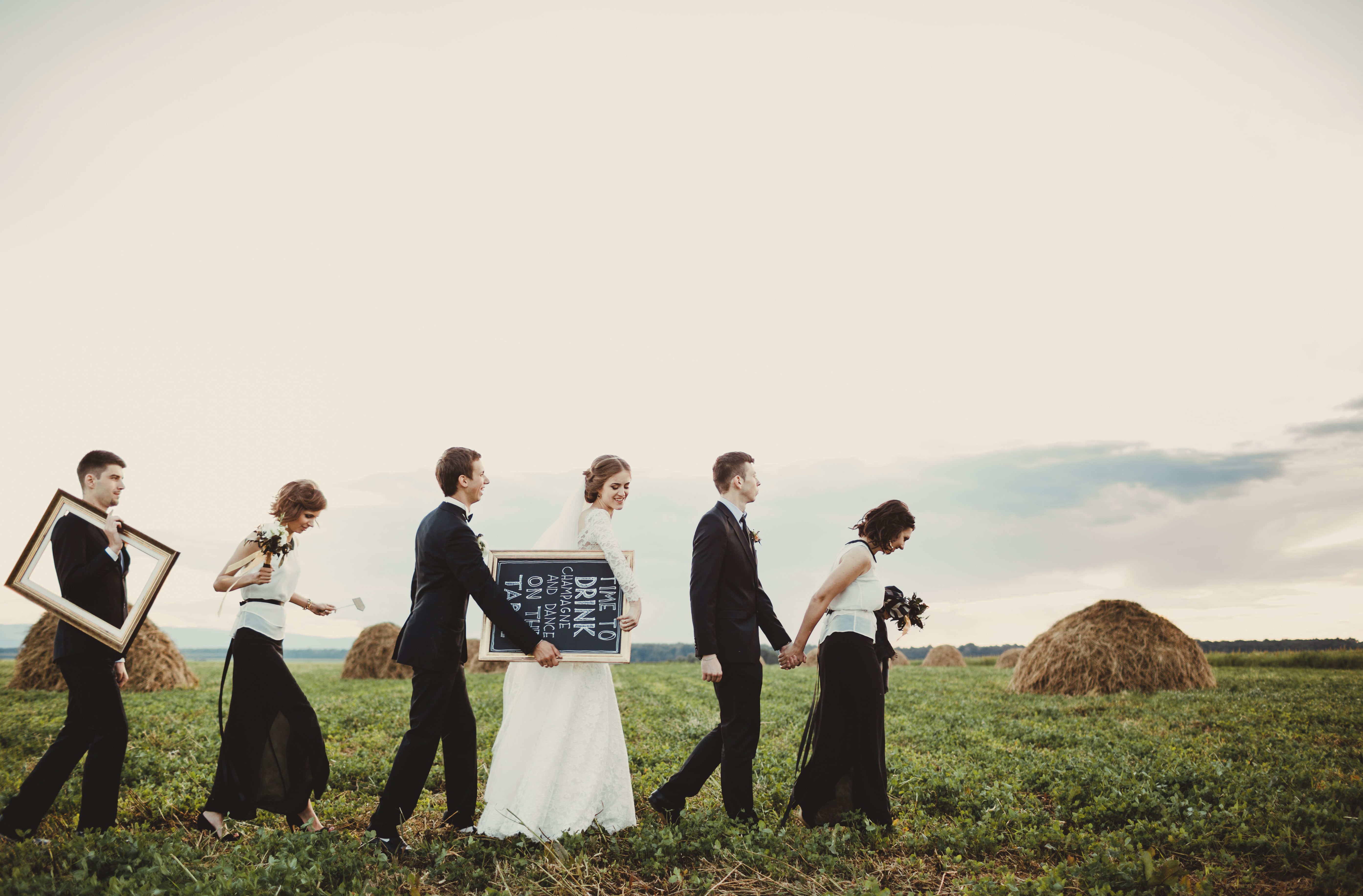


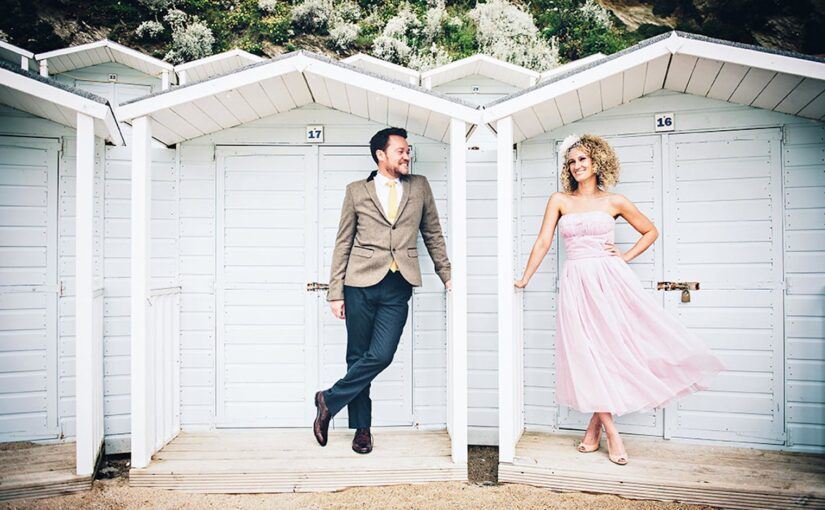
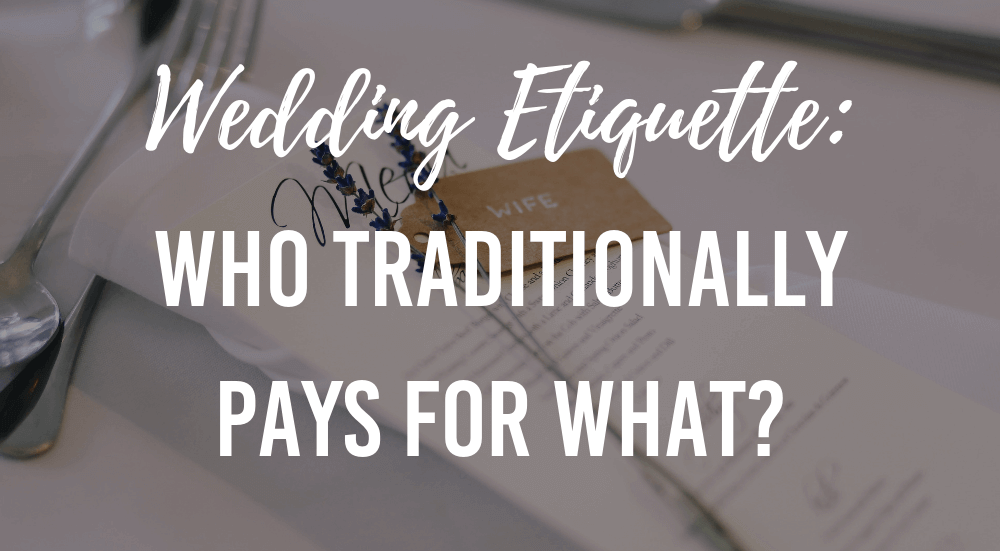 You’re engaged to your best friend, your partner in crime, your ride or die
You’re engaged to your best friend, your partner in crime, your ride or die 